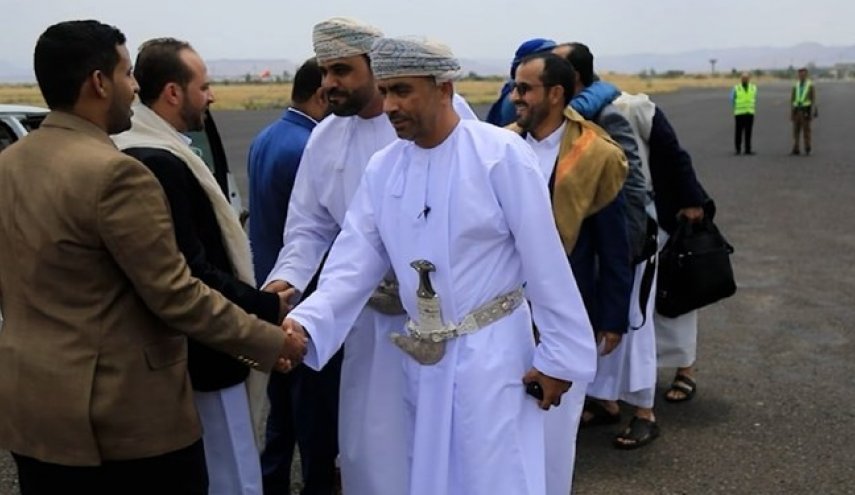Ahmad Hajisadeqian told the Strategic Council on Foreign Relations that Saudi Arabia is seriously making efforts to exert influence and power through its proxy forces on Yemeni-Yemeni talks, adding that negotiations between Yemeni political groups will be a big part of Ansarollah’s problems and Yemen’s problems. With the influence of regional and international powers, these negotiations do not seem to be going very well as they try to institutionalize the crisis in Yemen.
He described the tone of the political groups against each other as harsh and stated that the Yemeni-Yemeni negotiations would be a high-risk period. He added that it is unlikely that peace will be fully established in Yemen. Only Saudi land will be safe from Ansarollah’s drone attack and missiles, but Yemen’s internal problems continue.
According to the director of the Yemen desk at Mersad think tank, it is very unlikely that the Saudis will seek to establish peace in Yemen. In any way, they are trying to develop internal disputes in Yemen and not to conclude the Yemeni-Yemeni negotiations. They are interested in important and significant tools in this direction, including resources from oil and gas exports, government revenues, international seats of government, and the reconstruction and payment of Yemen’s budget.
Hajisadeqian listed the issue of war compensation in advancing the important negotiations and explained that the Saudis do not intend to compensate Sana’a as an aggressor country. Their effort is to finance the costs of rebuilding the destruction of the war in Yemen by holding an international conference and collecting international aid. Considering the economic conditions and the disorderly state of infrastructure in Yemen, this issue does not seem to disrupt the negotiation process.
Referring to the Minister of Defense of the National Salvation Government of Yemen’s statement that there will be no peace until the withdrawal of foreign forces from Yemen, he said that it seems that the Saudi plan for Yemen has undergone a fundamental change. They are trying to replace the direct military presence in Yemen and focus more on supporting proxy forces.
The director of the Yemen desk of the Mersad think tank continued that Riyadh announced a while ago that with the cessation of direct military operations in Yemen, it only has an advisory and humanitarian presence in this country. However, with the cessation of their military operations in Yemen, it cannot be said that their military presence has wholly ended; instead, they are fully advancing their goals through proxy forces. This strategy is similar to the strategy that the UAE announced in 2020, according to which it has completely stopped its direct military presence in Yemen. Still, after that, we see that the Emiratis continue to have a serious presence and activity in Yemen through local proxy forces.
At the same time, Hajisadeqian said that this strategy would attract the opinion of Ansarollah to a large extent. Of course, foreign military forces are not exclusive to the Saudis. We witness the presence of the US and British military forces in Yemen and other international powers in Yemen’s territorial waters. Still, in the current situation, the Saudis and other powers are largely not inclined to have a direct military presence in Yemen. This issue is acceptable to Ansarollah.
He pointed to Ansarollah’s insistence on the need to lift the blockade and reopen the port of Hudaydah. He added that the complete reopening of the port of Hudaydah and the increase in flight destinations of Sana’a airport should also be considered as a symbolic point of the end of the war, which is probably going to be operational as the first achievement of the signing of the ceasefire agreement.
Now, to a large extent, the blockade of this port has been lifted. Previously, the ships had to go to Jizan or Djibouti port to unload their cargo in Hudaydah. They were inspected for several weeks and then went to Yemen with military forces stationed on the ship. An important part of the goods needed by Yemen was basically embargoed and was not allowed to enter the ports of Yemen. The Saudis have lifted the ban, and direct inspection has been eliminated. There is only limited inspection in Djibouti, and, likely, ships to Djibouti will soon stop operating.
This expert on Yemen issues, stating that the most important issue for Ansarollah will be to enter the Yemeni-Yemeni negotiations, continued that the policies of the West and Saudi Arabia in the past months, in support of the southern separatists, including the accompaniment of “Aidros Al-Zubaidi,” the head of the Transitional Council of the South with the Yemeni delegation and his speech on the sidelines of the United Nations General Assembly regarding the need to divide the South of Yemen can be an important alarm for not resolving the internal disputes of Yemeni groups by inciting foreign powers.
He emphasized that the UAE, the US, and the UK also have no desire for complete stability in Yemen. Still, despite all of this, the cessation of military aggression and aerial bombardment was an excellent victory for Ansarollah.
Hajisadeqian considered the role of Oman in advancing the negotiations in the recent period very important and valuable and added that the Omani authorities’ adoption of this wise policy will significantly improve the position of this country in the region and the world.










0 Comments